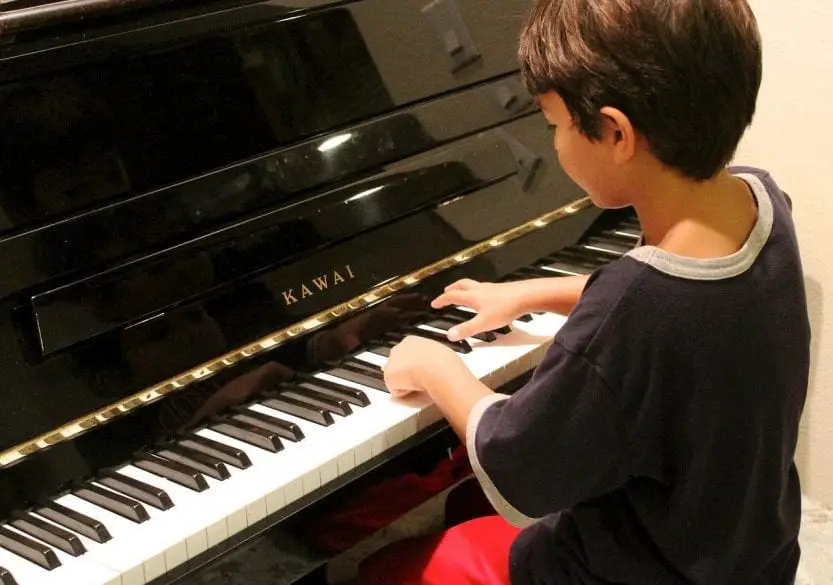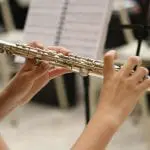Learning an instrument is a dream for many. When we see others play and create wonderful melodies, it instills a wonderful feeling. There are a many popular notions such as the “Mozart Effect” which talks about the fact that people listening to classical music are more intelligent. These ideas further inspired by highly intelligent musicians across the globe leads to the idea that music can make you smarter. These ideas have further led to a high popularity of instrument learning among young kids. Parents would often assign their kids to a music class in hopes.
In the year 1974, a couple of renowned music researchers who studied effects of music, Gillian Thatcher and Desmond Sergeant described a popular quote. There conclusion was that highly musical people would often be very intelligent and not otherwise.
So does music and instrument really affects our brain development? Will music make us smarter? In this article we will discuss various scientific research and studies to understand the same. We will also discuss instruments and when to start learning one.
Why A Musician May Posses Better Brains?
Scientific evidence have suggested that early musician training help improve the structure and functions of the better. They make our neural development better than that of other average human beings. The benefits include an improved memory in long term. Students who start learning music from a young age would benefit improved brain development.
Another study about effects of music upon human brains in University of Montreal have found that musicians would often develop a highly alert brain. The study concluded their results to the better mind and body connection as evident during learning of an instrument.
Lead Researcher for the Montreal Study, Simon Landry has described that with more study to the impact music has on our sensory processes, we can apply it to solve cognitive functions. The studies could be applied to treat individuals who suffer from a lower reaction rate. These inabilities often exaggerate to sensory diseases such as dyslexia. Landry also adds that as people with age tend to get slow in their reactions, the study can hold key for such people. If instruments directly impact the reaction time, then such instruments can help ageing people from reducing the impact of age related slower reaction rates. The study could open path to various such implications.
The Science Behind Instrument And Brain Development
In a previous experiment, Simon Landry had discovered that musicians would often posses a fast audio tactile, tactile and auditory reaction rate. Musicians would also have developed and established multi-sensory information procession which are altered statistically. In simple terms it would mean that they integrate inputs from all the different senses of the body better than an average human being. Noted neuropsychologist from the University Of Westminster, Catherine Loveday describes music as a unique experience. It has the tendency to powerfully stimulate our brain. The emotional connect we establish with music helps in the stimulation in the most unique manner.
A major difference between games designed to boost mental power and instrument playing would be the complexity of experience. Unlike games, instrument require our brain to integrate multiple information derived from our senses of touch, vision and hearing ability coupled with coordinated hand movement. This can leave long term and almost permanent change in our brain neural development. The unique experience of instrument helps boost our brain activity which can help in other business activities as well.

Our Brains When We Play Instrument
There have been brain scans that have been done to establish the differences between brains of a musician with that of a non-musician. A major noticeable difference between musicians and non musician is that in Corpus Callosum. It is a massive amalgamation of brain neurons which sort of connect the two sides of our brain and is significantly larger in size among musicians. Alongside other noticeable changes were seen in professional keyboard and piano players. They posses larger brain parts which were responsible for our hearing, visuospatial and movement related activities.
The earlier results with these studies proved inconclusive to determine whether these changes were directly linked to musical instrument training or anatomically some were more predisposed to becoming musicians. However, with continued studies it was conclusively proved later. Specially among children who have undergone at least 14 months and above of musical instrument training. They would develop better and powerful neural structural and functional capabilities of their brains.
So the brain studies were successful in establishing that musical instrument training effects our gray matter generation and volume. Various regions of our brain would benefit with increased gray matter.
The studies also establishes that our long term neural connections in the brain would benefit from learning instruments as well. Further studies have also established that training oneself in a musical instrument would also improve our literacy skill, our verbal memory and improve spatial reasoning.
Music and social development
There were many researches that have been conducted to further study the impact of instrument in children development. A study conducted with parents and teachers of children’s learning instruments for many years reflected upon various socio and emotional impact of instruments in their lives. The studies have shown that children who chose to learn an instrument displayed lack of anxiety compared to those who were in group lesson. These finding have been documented by their teachers and parents spreading over many years. The children who took instrument lessons were believed to be open about their issues as against those who were in group lessons.
These studies have helped psychoanalyst study the patterns and establish socio cultural behavior. The surrounding environment around learning an instrument is something children enjoy the most. They come to appreciate the joy of expression through music and the same principle applies for their personal mindset. The impacts of musical instrument upon mental well-being of children is manifold.
Music also provides serious players immense opportunity to travel the world, mingle with cultures from across the globe. It helps them foster positivity and creativity in to their lives using music as a medium.
Some Other Ways How Learning Instruments Can Strengthen Our Brain
Well, now that we have spoken about the impact of music in our brains, we would like to present you with few more ways where music impacts us. These are ranging from daily emotional well-being to more anatomical changes in us. Below we discuss other ways how learning instruments can help us.
1. It strengthens our bonds with other people. Music has always a source of socializing, connecting and exchanging ideas. Think back to the days of bands. The only way they could create such memorable music was to get together and create music together. Even now, numerous music concerts and shows are a source of mingling among the youth.
2. It strengthens our memory and improve reading capability. As we discussed earlier, various scientific studies have conclusively proven that music helps improve gray matter, thereby, improving our cognitive ability and long term memory power.
3. Playing Instruments can make us happy. A study at the McMaster University found out that those babies who were early exposed to interactive forms of music learned communication early. They were found to be happy and smiling more often than others. The study has conclusively proven that due to our improved communication ability, it would make us more happy.
4. Musicians are able to process better. As we discussed early, the cognitive ability and the parts of the brain associated with coordination, movement and motor skills significantly improved with musical training. Therefore musicians are able to better process multiple information.
5. Music help increase the blood flow rate in our brain. Many studies have conclusively found out that music help release short bursts of increase in the blood flow towards the left side of our brain. This results into a powerful bursting of energy which is helpful for us. It works similar to how caffeine induced energy drinks work.
6. Music also help our brain to recover. Many extensive studies have shown that the motor control ability among stroke patients would improve significantly with regular musical activities.
7. Music or playing instrument can greatly reduce anxiety and stress. Treat depression. A recent study among cancer patients have revealed that playing or listening to music would help in reducing anxiety. There was another study conducted which proved that use of music therapy is ideal to help lower bouts of depression in people.
8. Regular musical instrument training would strengthen the executive functions of the brain.
The term executive function would refer to various critical tasks of our brain like making decisions, retaining information, processing, problem solving and controlling behavior. If these functions are improved, it can help in boosting our ability and will to live. It has been found that musical instrument training helped in improving and strengthening of executive functioning of young and old alike.



